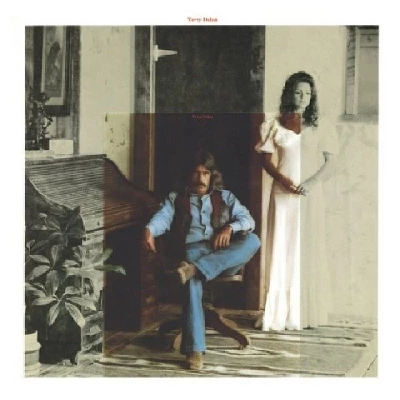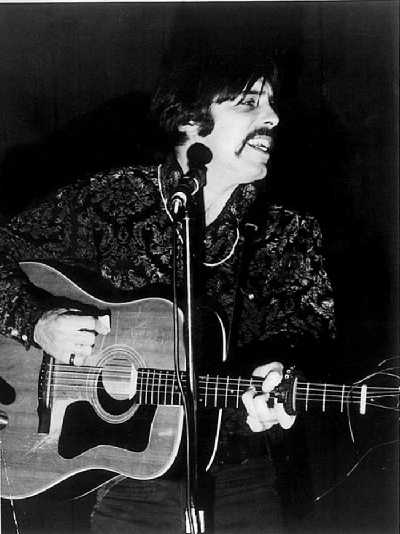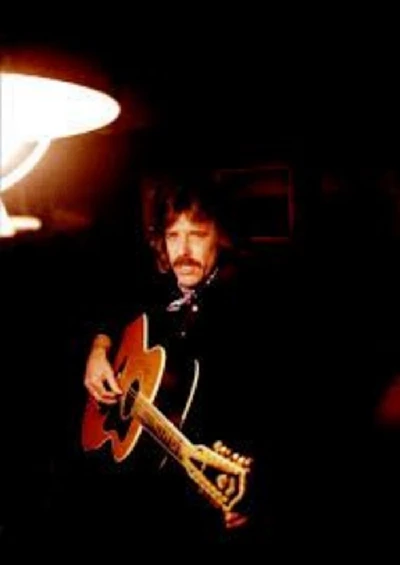published: 8 /
2 /
2017

Carl Bookstein examines San Francisco-based singer-songwriter Terry Dolan’s posthumously released self-titled 1972 debut album which features fine songwriting and a cast of brilliant musicians
Article
The story of Terry Dolan’s finally and posthumously released debut album now - delivered to Warner Bros in late 1972, forty plus years ago - could be seen as tragic. But ultimately in truth, in capturing a stellar cast of talent and musicianship as well as Dolan’s once auspicious beginnings, it is a cause for celebration.
Terry, an East Coast folkie who came out of the 1965 Washington D.C. coffee house scene, moved to San Francisco where he became a fixture at clubs like The Matrix, ultimately opening for big names like BB King. Strong demo recordings led to a deal with Warner Bros.
In January 1972, Terry and an elite group of musicians entered the recording studio with keyboardist Nicky Hopkins, the producer. As Hopkins ultimately had touring commitments with the Rolling Stones, the project stalled. Musician Pete Sears stepped into the producer’s chair halfway through recording, and the album was finished. Unthinkably, two months before the scheduled release date, Terry was dropped from the label.
There has been a great deal of speculation over the last forty some years as to what happened and still there is no definitive answer. Warner Bros' actions here are troubling to say the least. It has been speculated that, without Nicky Hopkins’ complete participation, Warner Bros may have deemed the album not commercially viable.
Terry took the news hard, but ultimately rallied, channeling his passion into an ongoing Bay Area music phenomenon, Terry and the Pirates, assembling kindred musical spirits and talents in the Bay Area music scene.
Terry Dolan passed away in January of 2012. He was told his album was slated for release before his passing, and he was thrilled. The album is finally now available.
'See What Your Love Can Do' resonates out of the gate, including backing vocals from an early appearance by the soon to be famous Pointer Sisters. Enter the folk rock vocal of Terry Dolan, singing about how love can brighten the sad song: “All those ain’t it a shame songs… all my what’s the use days.” The song is about the healing power of love. It is also a vehicle for the healing power of music.
'Angie' is a tender ballad - another rich Terry Dolan vocal, backed by the eloquent keyboard playing of the great Nicky Hopkins. Dolan is singing about new tomorrows, blessed by the inspiration of his love. It is a comfort song - richly textured and melodic.
'Rainbow' begins with rollicking, powerful piano playing rolling into some stellar electric guitar interplay. Dolan has a folk inflected vocal instrument, but is also an all out rocker. “God knows we need a rainbow,” he sings.
Dolan’s star powered band includes the work of guitarist Neal Schon of Santana and ultimately Journey fame.
The brilliant 'Inlaws and Outlaws' with lyrics about coming into Frisco and feeling good to be alive- possesses a whole story unto itself. Released to radio stations from an unpublished tape, with no physical record available, it was a big local San Francisco hit yet unavailable for purchase. It is a great, great song and the highlight of this album. “Now all my good friends are gypsies. What else could they be?” Dolan sings, accentuating the lyric “Living my life free.”
'Magnolia' is actually a JJ Cale song, the only one on the album that is not a Terry Dolan penned original. It is nevertheless well suited to Dolan’s folk based vocal: “You’re the best I ever had,” he sings.
Bonus tracks here include two more versions of the excellent 'Inlaws and Outlaws'.
Track Listing:-
Picture Gallery:-

